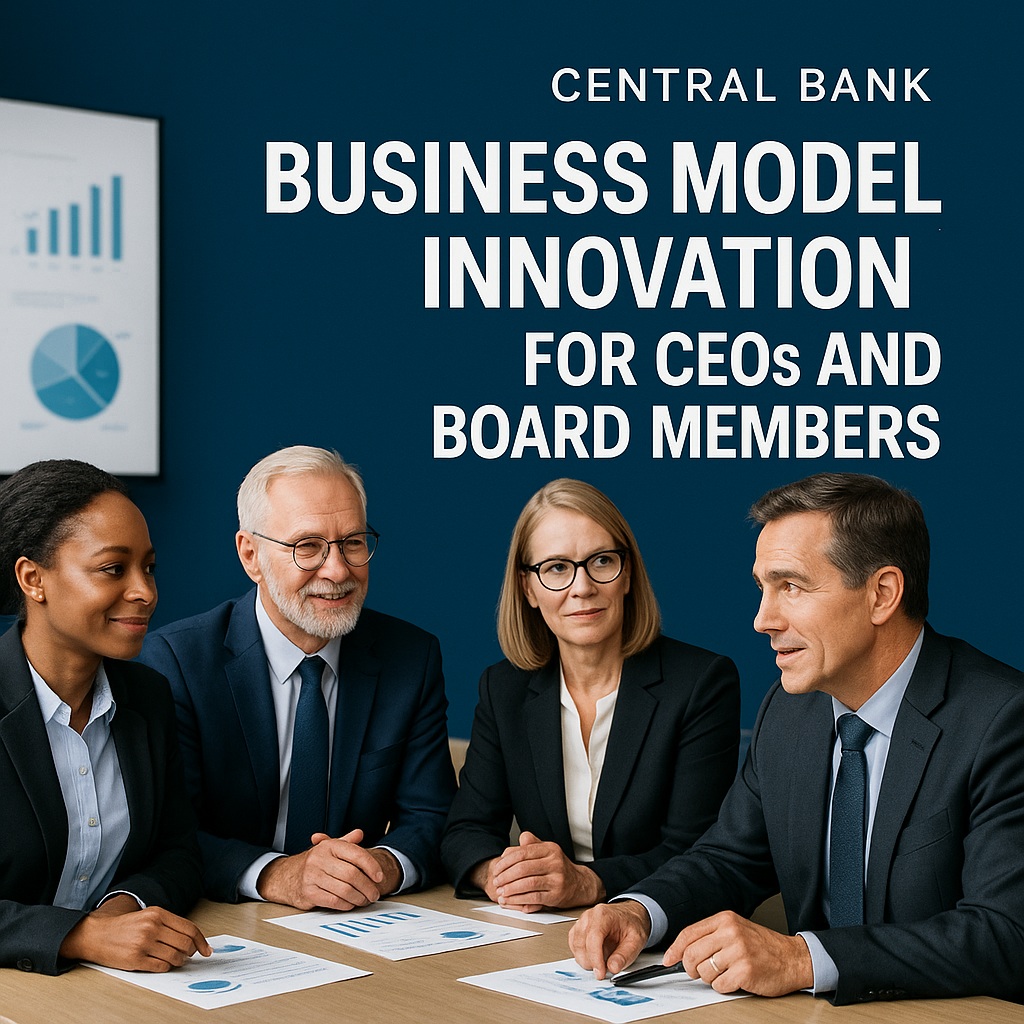- The IBSF
- Professional Courses
- C-Suite Program
- Reserve Banks and Treasury Programs
- Revenue Service Programs
- ICT and FINTECH Courses
- Commercial Banks & Other Financial Institutions
- Retail banking courses
- Corporate banking courses
- Investment banking courses
- Risk management courses
- Compliance and legal courses
- Banking operations courses
- Wealth management and private banking
- Loan and credit courses
- Financial management/accounting courses
- Foreign exchange and international banking
- Academic Courses
- Events
- Staff Directory
Business Model Innovation for CEOs and Board Members

About Course
The Business Model Innovation for CEOs and Board Members course is an advanced, executive-level program designed to help CEOs, board members, and senior leaders understand, navigate, and lead innovative business models in today’s rapidly changing marketplace. This course provides a comprehensive framework for driving strategic transformation through business model innovation, focusing on creating new value propositions, identifying growth opportunities, and ensuring long term sustainability. Participants will explore how to design and implement business models that are agile, customer-centric, and technologically empowered, leveraging real-world case studies, industry best practices, and cutting-edge methodologies. By emphasizing both theoretical principles and practical tools, this course equips executives with the skills needed to lead their organizations through the complexities of digital disruption, competitive pressures, and evolving market dynamics.
Throughout the course, participants will gain the knowledge to assess the performance and scalability of current business models, while exploring strategies for reinvention and growth. Expected outcomes include the ability to think strategically about new business models, assess emerging market trends, and make informed decisions that drive organizational transformation. By the end of the program, CEOs and board members will be empowered to lead their companies toward greater innovation, improved financial performance, and sustainable competitive advantage. The course also includes expert insights on how to align innovation efforts with corporate culture, governance structures, and long-term strategic goals, ensuring that transformation efforts are successful and impactful.
Target Audience:
This course is designed for CEOs, board members, senior executives, and strategic decision-makers responsible for guiding their organizations through growth and transformation. It is ideal for individuals seeking to understand how to lead innovation initiatives, evaluate business model changes, and drive corporate strategies that align with evolving market demands.
Course Content
Module 1: Introduction to Business Model Innovation
-
Unit 1.1: Understanding the Importance of Business Model Innovation
-
Unit 1.2: Key Drivers of Business Model Change
-
Unit 1.3: The Role of the Board and CEO in Leading Innovation
-
Unit 1.4: Business Model vs. Business Strategy: Key Differences
-
Unit 1.5: Assessing the Need for Business Model Innovation
